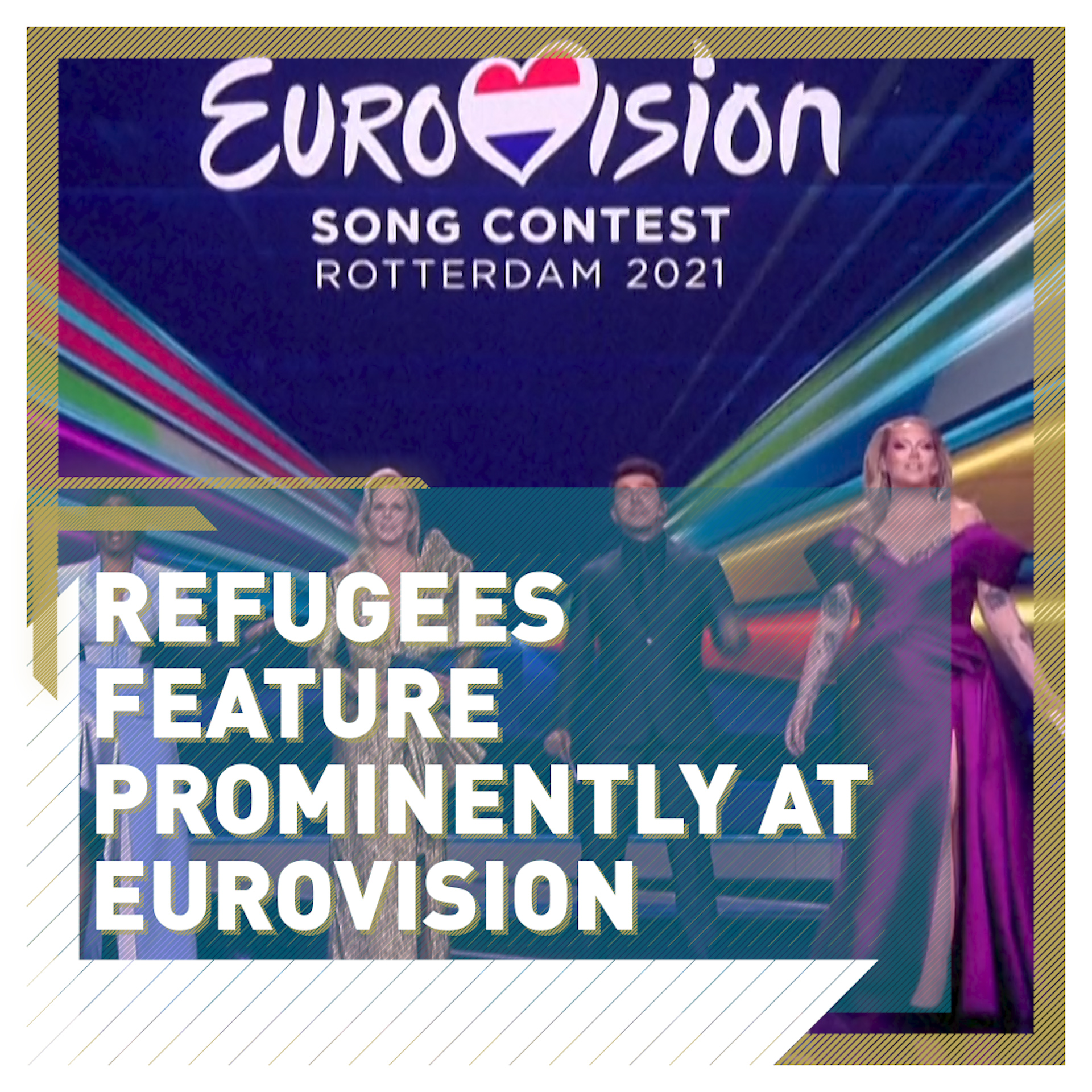00:57

Due to a last-minute surge of votes, Italy has won this year's Eurovision song contest – good news for one of the EU's worst-hit countries by the pandemic.
The Italian rock band Maneskin's win was a surprise for many people watching Saturday night's show.
Eurovision votes are now awarded in two phase: by juries around Europe and then by the public phone poll. After the jury votes Switzerland, France and Malta leading comfortably, with Italy in fourth place. But with large proportion of public votes, Maneskin suddenly outpaced the other countries to take what proved an unassailable lead.
This was the first win for Italy since 1990 when Toto Cutugno won with a song about the then-forthcoming European Union.
"The audience is the most important thing, of course," said bassist Victoria De Angelis after the show.
"The fact that so many people vote for us, it's the most meaningful, because that means that those people are coming to our gigs, they are listening to our music. And this has much more value than a jury."
Despite the merriment, the pandemic's presence was greatly felt during the competition – from a much smaller audience than usual to the show's "Open Up" theme.
"[The win] just so important for us that it's coming to Italy because we think it could be a message of hope because of this hard year we've been through," De Angelis added.
00:48

Only 3,500 fans attended the event in Rotterdam, Netherlands, all of whom had to test negative for the virus, in addition to following other COVID-19 restrictions. If successful in preventing a spike in cases, the measures put in place at this competition could be used at other events like Euro 2020 and the Tokyo Olympics.
But "Open Up" meant more than just COVID-19 restrictions for some attending and watching the event. This year, three of the people performing in the competition had refugee backgrounds, including two of the singers.
Manizha, a singer representing Russia, had fled Tajikistan in 1994 and is now an UNHCR Goodwill Ambassador. Tousin 'Tusse' Chiza, a singer representing Sweden, was originally from the Democratic Republic of the Congo and had previously spent three years in a refugee camp.
And during a break in the show, Ahmad Joudeh, a Dutch ballet dancer originally from Syria, danced a special performance about the human desire for connection.
"We hope the event will help bring people together in a spirit of unity and inclusion during these difficult times," the UNHCR said.
Source(s): AFP
,AP
,Reuters

